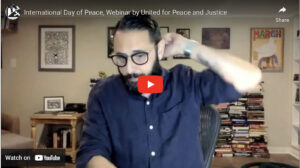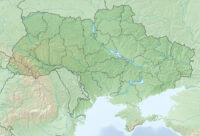Next week, Just Foreign Policy’s Policy Director, Robert Naiman, is traveling to Pakistan as part of a peace delegation to call for an end to U.S. drone strikes in Pakistan. He plans to deliver a petition from Americans to the U.S. Embassy in Pakistan and to Pakistani officials in opposition to U.S. drone strikes.
Sign our petition against U.S. drone strikes in Pakistan here:
http://www.justforeignpolicy.
U.S drone strikes in Pakistan have been coming under unprecedented scrutiny recently. Here are some of the key issues that are garnering attention:
US drone strikes in Pakistan have killed and harmed too many civilians. The Bureau of Investigative Journalism has reported 474 to 884 civilian deaths caused by US drone strikes in Pakistan since 2004, including 176 children. [1] Moreover, as a recent study from researchers at NYU and Stanford law schools notes, “US drone strike policies cause considerable and under-accounted for harm to the daily lives of ordinary civilians, beyond death and physical injury,” as civilians live in a state of constant fear, since drones could strike at any time. [2] Families are afraid to attend weddings or funerals, because US drone operators might strike them. [3]
US drone strikes in Pakistan haven’t made America safer. The Stanford/NYU study notes, “Publicly available evidence that the strikes have made the US safer overall is ambiguous at best … The number of ‘high-level’ militants killed as a percentage of total casualties is extremely low – estimated at just 2%. Evidence suggests that US strikes have facilitated recruitment to violent non-state armed groups, and motivated further violent attacks.” [4]
US drone strikes in Pakistan have helped turn the Pakistani public against the United States. Three quarters of Pakistanis now consider the U.S. an enemy. Only 13% of Pakistanis think relations with the U.S. have improved in recent years; four-in-ten believe that US economic and military aid is having a negative impact on Pakistan, while only about one-in-ten think the impact is positive. Only 17% back U.S. drone strikes, even if they are conducted in conjunction with the Pakistani government. [5]
US drone strikes in Pakistan violate international law. Christof Heyns, the UN special rapporteur on extrajudicial killings, has said that US drone strikes in Pakistan threaten fifty years of international law, and that some drone strikes may constitute war crimes. [6] A recent Congressional Research Service report noted that the US claims that drone strikes in Pakistan are in “self-defense” run afoul of international law which limits self-defense against prospective threats to ones which are “imminent.” [7] And international law experts say that attacks on civilian rescuers are clearly illegal, regardless of whether they take place in a legal conflict or not. [8]
US drone strikes in Pakistan violate U.S. law. The Administration claims the drone strikes in Pakistan were authorized by the 2001 authorization of military force after the 9/11 attacks. The 2001 AUMF authorized attacks on those who carried out the 9/11 attacks and those who harbored them. Judge Katherine Forrest has held that the 2001 AUMF did not cover mere “supporters” of such groups, and she questioned whether it covered associated forces. [9] Under this ruling, “signature strikes” and “secondary strikes” would be illegal under U.S. law.
US drone strikes in Pakistan undermine democracy. US officials claim that the Pakistani government has secretly approved the strikes by not opposing them in private [10]. But in public, Pakistani officials vigorously oppose the strikes. The Pakistani parliament has unanimously demanded that the drone strikes stop. [11] Meanwhile, the US government refused to give the US public, Congress, or US media basic information about the drone strike policy, claiming the policy is “secret” even as US officials publicly boast of the policy’s claimed successes. This lack of transparency undermines Americans’ ability to democratically control US foreign policy in the public interest. [12]
We demand an immediate moratorium on the drone strikes. We demand that U.S. policy in Pakistan be brought into compliance with U.S. and international law, that the U.S. government come clean about civilian casualties, that civilian victims and their families be compensated, and that “signature” drone strikes and attacks on civilian rescuers be permanently abandoned, in Pakistan and everywhere else.
Sign our petition, and we will hand-deliver it to U.S. officials in Pakistan. You can sign our petition here:
http://www.justforeignpolicy.
Thank you for all you do to help bring about a more just foreign policy,
Robert Naiman, Chelsea Mozen, Sarah Burns and Megan Iorio
Just Foreign Policy
Please support our work. Donate for a Just Foreign Policy.
http://www.justforeignpolicy.
References:
1. “Drone strikes in Pakistan have killed many civilians, study says,” David Zucchino, Los Angeles Times, September 24, 2012, http://www.latimes.com/news/
2. “New Stanford/NYU study documents the civilian terror from Obama’s drones,” Glenn Greenwald, The Guardian, Tuesday 25 September 2012 08.18 EDT,http://www.guardian.co.uk/
3. “Drone attacks in Pakistan are counterproductive, says report,” Owen Bowcott, The Guardian, 24 September 2012, http://www.guardian.co.uk/
4. Ibid.
5. “Pakistani Public Opinion Ever More Critical of U.S.” Pew Research Center, June 27, 2012, http://www.pewglobal.org/2012/
6. “Drone strikes threaten 50 years of international law, says UN rapporteur,” Owen Bowcott, Guardian, Thursday 21 June 2012, http://www.guardian.co.uk/
7. “Legality of Targeted Killing of Suspected Terrorists Reviewed by CRS,” Steven Aftergood, Federation of American Scientists, September 10th, 2012,http://www.fas.org/blog/
8. “A question of legality,” Chris Woods, The Bureau of Investigative Journalism, February 4th, 2012, http://www.
9. “U.S. Appeals Judge Grants Stay of Ruling on Detention Law,” Charlie Savage, New York Times, September 18, 2012, http://www.nytimes.com/2012/
10. “U.S. Unease Over Drone Strikes,” Adam Entous, Siobhan Gorman and Evan Perez, Wall Street Journal, September 26, 2012, http://online.wsj.com/article/
11. “Pakistan’s Parliament Demands an End to Drone Attacks,” Brian Padden, VOA News, April 11, 2012, http://www.voanews.com/
12. “Too Much Power for a President,” Editorial, New York Times, May 30, 2012,http://www.nytimes.com/2012/


